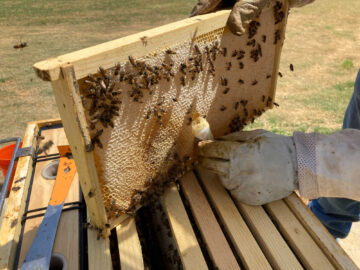Emma Foehringer Merchant in Undark:
 Best Bees is one of the many companies carving out a niche in a commercial landscape increasingly focused on advertising environmental responsibility, pushed by both customer demand and regulatory requirements. Testing environmental DNA, which allows data to be gathered from the tiny pieces of skin, scales, and slime that species shed as they move through the world, has been framed as a cheap and efficient way to understand a corporation’s impact.
Best Bees is one of the many companies carving out a niche in a commercial landscape increasingly focused on advertising environmental responsibility, pushed by both customer demand and regulatory requirements. Testing environmental DNA, which allows data to be gathered from the tiny pieces of skin, scales, and slime that species shed as they move through the world, has been framed as a cheap and efficient way to understand a corporation’s impact.
As supporters lobby for regulatory acceptance, a group of large consulting companies and eDNA specialists see the tool as a promising way to monitor corporate sustainability, like measuring the success of conservation efforts or the possible effects of a new bridge or parking lot. Experts say eDNA has limitations and drawbacks. So far, it appears that the tool is best used as one tool among a suite of monitoring methods, so it’s unlikely the technology will completely disrupt the environmental consulting industry, which according to The Insight Partners, a market research firm, was valued at more than $34 billion globally in 2020. But eDNA has undoubtedly created new opportunities to gather and monetize data.
More here.
